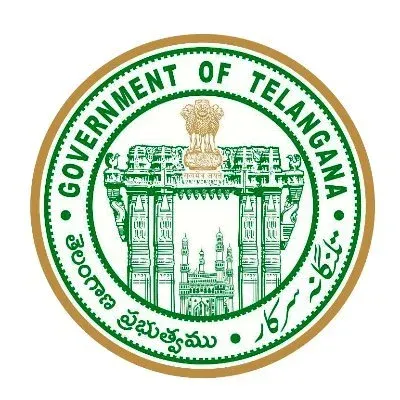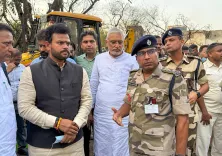Has Telangana Announced Pre-Primary Sections in Government Schools?

Synopsis
Telangana's government has taken a major step by announcing the launch of pre-primary sections in its government schools, aiming to enhance early childhood education and reduce financial burdens on parents. This initiative aligns with national educational policies and represents a significant shift in the state's approach to foundational education.
Key Takeaways
- Telangana government announced pre-primary sections in 210 schools.
- Classes will cater to children aged five.
- Initiative aims to enhance educational standards and reduce financial burdens on parents.
- Aligns with the National Education Policy 2020.
- Education commission formed to address policy gaps.
Hyderabad, June 11 (NationPress) The government of Telangana made a significant announcement on Wednesday, declaring its intention to establish pre-primary sections within government schools across the state.
As an initial endeavor, the state will launch pre-primary sections in 210 schools.
Currently, government schools in the state provide education starting from Class 1, and the pre-primary classes will cater to children aged five.
This initiative aims to enhance educational standards from pre-primary through high school while also alleviating the financial strain on parents, many of whom currently enroll their children in private pre-primary institutions.
According to E. V. Narasimha Reddy, Director of School Education and State Project Director for Samagra Shiksha, Telangana, the approval for 210 pre-primary sections has been incorporated into the Annual Work Plan & Budget (AWP&B) for 2025-26 of Samagra Shiksha.
He urged district educational officers to provide necessary instructions to headmasters for the effective enrollment of students in the pre-primary sections of the designated schools.
The identified schools are located in Hanumakonda, Jagtial, Mancherial, Nizamabad, Peddapalli, Siddipet, Warangal, Nirmal, and Mulugu districts.
Recently, the Central government mandated the establishment of pre-primary classes in government schools, aiming to broaden early childhood education access. This initiative is in line with the National Education Policy 2020 (NEP 2020), which underscores the importance of a "foundational stage" for education, including three years of early childhood education for ages 3-8.
In April, Chief Minister A Revanth Reddy announced plans for government schools in the state to introduce nursery, lower kindergarten (LKG), and upper kindergarten (UKG) classes, paving the way for students before they enter Class 1.
The decision to implement preschool programs in government schools was influenced by uncertainties within the state’s primary education policy.
An education commission has been established by the state government to address these policy gaps in the foundational education system, consisting of education experts who recommended formalizing a preschool system in government schools.





